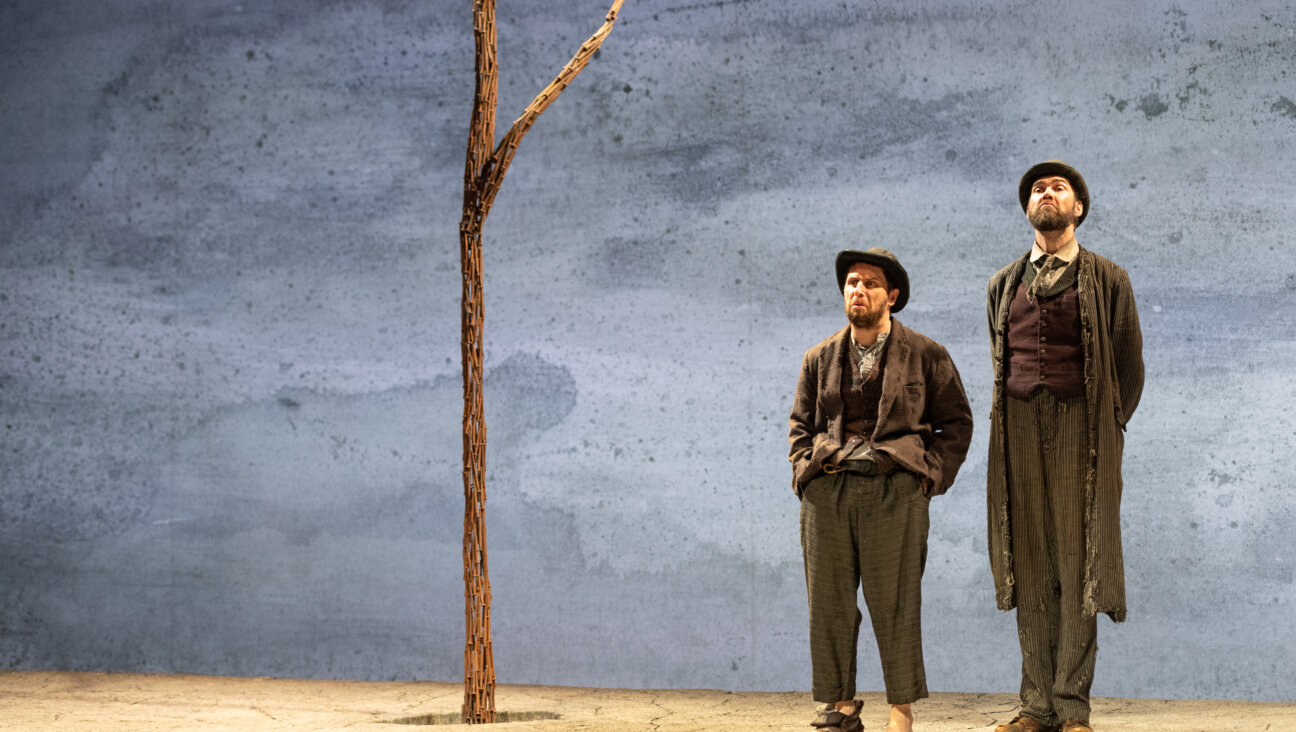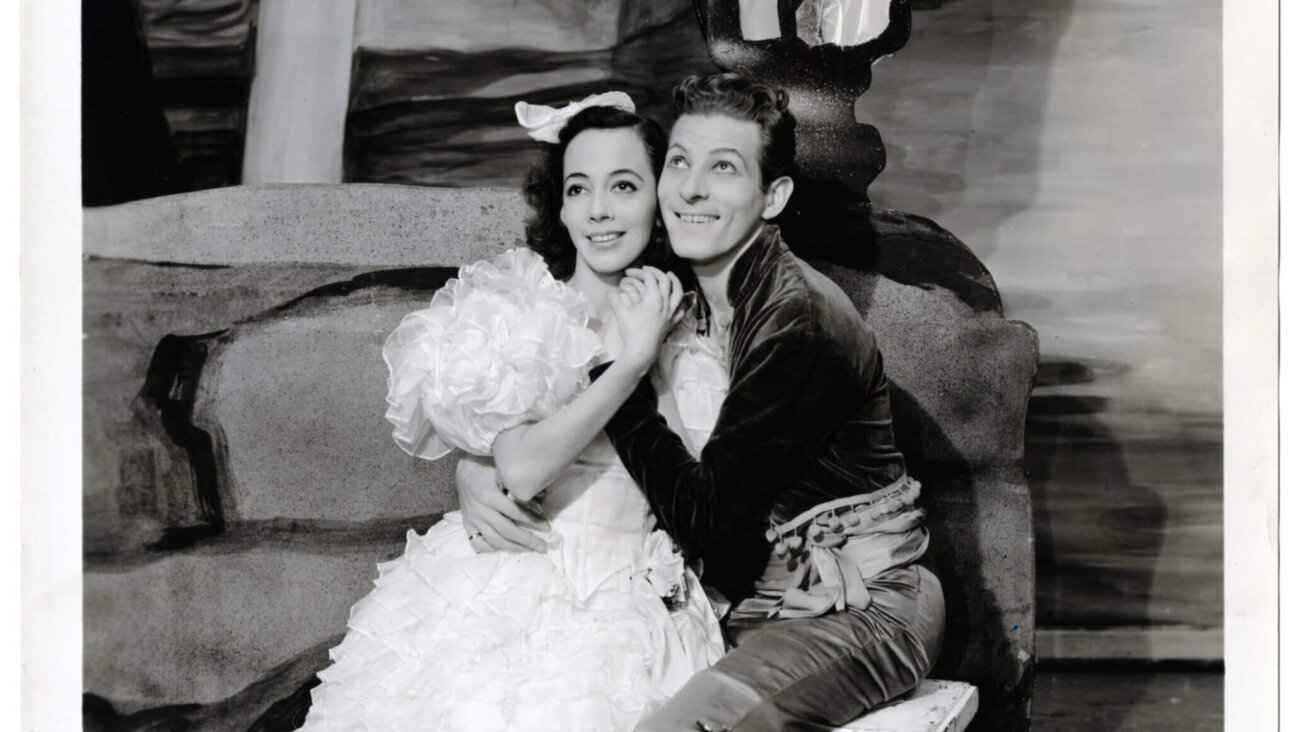Philip Levine: ‘1949, Miami Beach. Zero.’
Philip Levine, who has been named the next Poet Laureate of the United States, was the first poet featured in the Forward’s Psalm 151 poetry series. In this piece from the Forward’s archives, Rodger Kamenetz writes about Levine’s poem “Zero for Conduct.”
Originally published in the Forward December 1, 2000.
A powerful body of Jewish American poetry has emerged since the end of World War II. In recognition of this rich proliferation, the Forward has asked me to set out some examples in a monthly series featuring new poems by distinguished contemporary poets. Instead of getting caught up in defining Jewish American poetry — which takes the complexity of “Who is a Jew?” and multiplies it by the complexity of “Who is a poet?” — I thought we would dive right in with a beautiful poem by Philip Levine, “Zero for Conduct.”
The son of Russian Jewish immigrants, Mr. Levine was born in Detroit in 1928. He is the author of 16 books of poetry, for which he has been honored with a Pulitzer Prize, a National Book Award, an American Book Award, two National Book Critics Circle Awards and a Lenore Marshal Poetry Prize. His most recent collection, published last year by Knopf, is titled “The Mercy.”
Mr. Levine’s work is distinguished by its piercing clarity and frank beauty, its deep regard for the wisdom and difficulties of working people, as well as by its sudden moments of illumination and revelation.
In “Zero for Conduct,” an unlikely spiritual journey unfolds just after closing time as a “band of four sure losers” joins a fierce search for transcendence against difficult odds. As he often does, Mr. Levine appears in his own work as witness and guarantor of the truth.
Mr. Kamenetz is the author of “The Missing Jew: New and Selected Poems” and “Stuck: Poems Midlife.” “Stalking Elijah” won the National Jewish Book Award for Jewish Thought in 1997.
ZERO FOR CONDUCT
The bartender says, “Please,” and then suggests
they go somewhere else to finish their fight.
He’s had it. Night after night, the story
always the same: Zero just wants a place
in which to quietly ruin his life —
the words are his — and Estelle just requires
he live in a torment of her design.
1949, Miami Beach. Zero
farther down on his luck than even I,
waiting tables at the last Jewish diner
in Christendom, peeling potatoes, learning
fry cooking from an ex-con from Fresno.
So the four of us — I had a sidekick
in Cuban porno films teaching me Spanish —
set out for the Topper, where Zero worked
until the night he lay down on the parquet,
face down, and begged Jesus Christ to kill him.
The audience had hissed, so he pissed his pants.
Tonight in the warm moonlight the world seems
full of possibility. At the sky’s edge the stars
open and close their eyes as though flirting
with our little band of four sure losers.
I can hear the ocean sighing out there
where the invisible enters my sight
to become a cliché. Zero suddenly stops,
stamps out his cigarette, points heavenward
to announce that the one God of his boyhood
is hiding his face behind the lightshow
and will show no other side of death
unless it’s the sea out there churning at rest.
Then he dubs his Estelle Queen of the Night.
“Ascend to your throne!” He tries to lift her
by the elbows, but the weight of her prattle,
constant and incomprehensible, holds
her earthward. Why I woke the next morning
just after the false dawn on someone’s couch
to hear Zero at prayer, wrapping tefillin,
I’ll never know, nor what silenced Estelle
at last, nor why the cold sea swallowed the sky,
nor why I’ve chosen you to tell this to.
— Philip Levine

I hope you appreciated this article. Before you go, I’d like to ask you to please support the Forward’s award-winning journalism this Passover.
In this age of misinformation, our work is needed like never before. We report on the news that matters most to American Jews, driven by truth, not ideology.
At a time when newsrooms are closing or cutting back, the Forward has removed its paywall. That means for the first time in our 126-year history, Forward journalism is free to everyone, everywhere. With an ongoing war, rising antisemitism, and a flood of disinformation that may affect the upcoming election, we believe that free and open access to Jewish journalism is imperative.
Readers like you make it all possible. Right now, we’re in the middle of our Passover Pledge Drive and we need 500 people to step up and make a gift to sustain our trustworthy, independent journalism.
Make a gift of any size and become a Forward member today. You’ll support our mission to tell the American Jewish story fully and fairly.
— Rachel Fishman Feddersen, Publisher and CEO
Join our mission to tell the Jewish story fully and fairly.
Our Goal: 500 gifts during our Passover Pledge Drive!
























